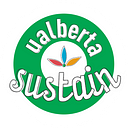An ocean of enthusiasm
Marine ecologist Stephanie Green shares what she loves about teaching
By Jenna Bell
In my experience, a good instructor makes all the difference. Having a top-notch professor can make even the driest material enjoyable — someone like Dr. Stephanie Green. This biological sciences prof makes a true effort to connect with her students and share the wonders of ecology in her BIOL 208 Principles of Ecology (part of the Certificate in Sustainability).
Her passion for the natural world flows into her students as she shares personal stories about being an ecologist, and provides students with entertaining “eco-breaks” each class — fun videos exploring the natural world. Some of these videos include the unconventional behaviours of termites, the phenomenon of frozen frogs and the cleverness of fish. Outside the classroom, Dr. Green is a Canada Research Chair in aquatic global change ecology and conservation, and focuses on aquatic and marine systems in her own work.
What do you find rewarding about being an instructor?
I really appreciate being an educator because of the diverse interactions and the questions that students bring to me. It keeps me thinking broadly.
Plus, students play a huge role in research in our lab, and the best way to get students excited about potential research opportunities is to show them what is possible and why the research matters — through teaching!
What’s your approach to teaching BIOL 208?
I try to bring in case studies and examples that will make the material relevant to everyone. I recognise the diversity of these students — some are new to post-secondary and some are returning to it. My hope is that there are some ecological tools and ways of thinking about the environment that students can take away and apply in their lives. As they’re reading social media, for instance, they can critically evaluate what’s happening with the environment.
Coffee or tea?
Coffee, absolutely. A couple of times a day!
What does sustainability mean to you?
Sustainability means allowing space for biodiversity to thrive, and ensuring the goods and services people get from the environment are still around in the future — including the role of nature in maintaining our psychological and emotional well being.
Why should students pursue the Certificate in Sustainability?
At the end of the day, what you get out of university is partly your ability to think and problem solve, but it’s also about the network that helped open opportunities for you beyond university. The certificate offers opportunities for students to broaden their network and make connections that they wouldn’t normally make through pursuing a major.
Would you rather live by the ocean or the mountains?
It’s hard to choose — having such deep roots in marine research and conservation, the ocean has a really special place for me. But being by the mountains also reinforces what is so cool about different parts of our environment… It’s hard to choose!
Students love finding out what their instructors are researching. What is an exciting project you have on the go, or coming up?
One of our projects is to study how marine fisheries for tuna will be affected by changing ocean climate. We focus on albacore tuna, a fast, predatory fish that lives in the open ocean. They support important fisheries for Canada and around the world (it’s the main tuna you’ll find at the grocery store). We know that changing ocean temperatures are altering populations of the smaller ocean species that albacore feed on, but we don’t yet know what will happen to tuna themselves. We’re looking in tuna stomachs to see what they’re eating, and creating computer simulation models to predict how the species might change its distribution to track prey in a changing ocean.
Is there anything else you’d like to add?
I think it’s important for students to know that they can have a really big impact on their instructors and advisors. Programs like the Certificate in Sustainability allow for a reciprocal relationship. Everyone who’s involved in the program really benefits from the students being there. So by engaging in that you also have an opportunity to shape the future of that program, which is pretty cool to think about.
This interview has been edited for clarity and length.
